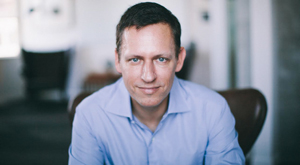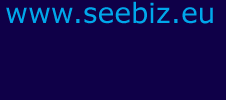Peter Thiel
Zero to One: Notes on Startups, or How to Build the Future
“What important truth do very few people agree with you on?” "Every moment in business happens only once. The next Bill Gates will not build an operating system. The next Larry Page or Sergey Brin won’t make a search engine. And the next Mark Zuckerberg won’t create a social network. If you are copying these guys, you aren’t learning from them. It’s easier to copy a model than to make something new: doing what we already know how to do takes the world from 1 to n, adding more of something familiar. But every time we create something new, we go from 0 to 1. The act of creation is singular, as is the moment of creation, and the result is something fresh and strange." Peter Thiel, Zero to One: Notes on Startups, or How to Build the Future

Zero to One: Notes on Startups, or How to Build the Future, published in 2014, is a refinement, with new ideas added, of notes from a class that Mr. Thiel taught at Stanford in 2012. A student, the co-author Blake Masters, took notes on this class that have become semi-legendary.
His ideas and prescriptions are as wide-ranging as they are concrete and actionable. From the ideal size of a startup's board of directors to the future of humanity, Thiel holds very little back and mostly manages to tie all this theory together into a practical, coherent worldview.
Zero to One offers far more than a simple how-to book, to successfully survive as a startup. Actually, no success stories of survivor companies are similar, just as each individual has unique attributes potentially leading them to success; as Peter Thiel puts it, all happy companies are different. Reading Mr. Thiel's story of building PayPal won't make someone a next game changer, but his notes on startups and the tech industry in general are good insights to a market generating a great amount of wealth to its participants (just think about the simple example of profit margin comparison between Google and U.S. airline companies: in 2012, Google generated revenue of $50 billion (versus $160 billion for the airlines) of which 21% was profit - more than hundred times the airline industry's profit margin.
The main theme of the book, as the title aptly suggests, is that ambitious people should strive to create new things in the world that have the potential to move humanity forward by an order of magnitude. We should be creating one of something, where there was a zero before - as opposed to going from 1 to n (or more aptly, from n-1 to n). The highlighted examples of going from 0 to 1 include Google, Facebook, SpaceX, and Paypal. Examples of going from n-1 to n include the myriad of clean-tech companies have started in recent years, as well as restaurants, consultancies and law firms. Thiel uses recent history to persuasively argue that the world (and especially the USA) is stuck in a cycle of n-1 to n thinking, which is based on its particular outlook on the future. He divides the world's attitudes toward the future into four categories, along two axes - indeterminate vs. determinate and optimism vs. pessimism. A determinate outlook says that we can affect how the future turns out, while an indeterminate outlook says that things are more or less left to fate. You can be either optimistic or pessimistic about either of those views.
Since the 1980s, Thiel says, America has been stuck in a malaise of indeterminate optimism - we still feel that the future will be better than the present, but we have no idea how it's going to happen.
About Europeans he states: “Every culture has a myth of decline from some golden age, and almost all peoples throughout history have been pessimists. Even today, pessimism still dominates huge parts of the world. An indefinite pessimist looks out into a bleak future, but has no idea what to do about it. This describes Europe since the early 1970s, when the continent succumbed to undirected bureaucratic drift. Today, the whole Eurozone is in slow-motion crisis, and nobody is in charge. The European Central Bank doesn’t stand for anything but improvisation: the U.S. Treasury prints “In God We Trust” on the dollar; the ECB might as well print “Kick the Can Down the Road” on the euro. Europeans just react to events as they happen and hope things don’t get worse.”
Thiel begins his book with the contrarian premise that we live in an age of technological stagnation, even if we’re too distracted by shiny mobile devices to notice. Information technology has improved rapidly, but there is no reason why progress should be limited to computers or Silicon Valley. Progress can be achieved in any industry or area of business. It comes from the most important skill that every leader must master: learning to think for yourself.
In the very beginning of the book, Thiel shares his answer to the central question: "What important truth do few people agree with you on?" (and the corollary: What valuable company is no one building?). He takes a very binary approach to the question, taking the side of technology in the "globalization v. technology" debate.
Thiel frequently references the characteristics of "great companies" and the importance of resilience and creating value in a crowded world (and more importantly, capturing that value).
Among the ideas put forward by the author, the strongest and most controversial might be his acclaim for monopolistic power. In some way, the companies powerful enough to move markets and to have a solid impact on technological development most certainly have established themselves as monopolistic players; they just find ways not to make themselves look bad. However, on the other side, the new bright minds with fresh perspectives to change the world for the better face much tougher challenges to pitch their ideas and eventually go from 0 to 1. Maybe that is exactly what new startups should do. Instead of trying to find a niche in a monopolistic market, startups are supposed to find entirely different ideas - not just the ones to improve existing products. Another interesting insight is Mr. Thiel's interpretation of the tech bubble. Tech companies were valued much higher than their fundamental values, in addition to having nearly zero tangible assets, as many tech companies do. Mr. Thiel explains how these companies failed to answer important questions regarding engineering, timing, distribution, people etc.
The second half of the book is mostly an overview of what works and doesn't work when you are trying to do something as audacious as take the world from 0 to 1. This culminates in Thiel's seven big questions that a startup must ask itself in order to become successful: 1. The Engineering Question Can you create breakthrough technology, instead of incremental improvements? 2. The Timing Question Is now the right time to start your particular business? 3. The Monopoly Question Are you starting with a big share of a small market? 4. The People Question Do you have the right team? 5. The Distribution Question Do you have a way, to not just create, but deliver your product? 6. The Durability Question Will your market position be defensible 10 and 20 years into the future? 7. The Secret Question Have you identified a unique opportunity that others don't see?
After reading the book and going through the seven questions, maybe one should ask again: “What important truth do very few people agree with you on?” Because we live in a world where there are still uncharted frontiers to explore, and new inventions to create.
Peter Andreas Thiel (born October 11, 1967) is a German-Americanentrepreneur, venture capitalist and hedge fund manager. Thiel co-founded PayPal with Max Levchin and Elon Musk and served as its CEO. He also co-founded Palantir, of which he is chairman. He was the first outside investor in Facebook, the popular social-networking site, with a 10.2% stake acquired in 2004 for $500,000, and sits on the company's board of directors.
Thiel serves as president of Clarium Capital, a global macro hedge fund with $700 million in assets under management; is a managing partner in Founders Fund, a venture capital fund with $2 billion in assets under management; is a co-founder and investment committee chair of Mithril Capital Management; and is co-founder and chairman of Valar Ventures.
Thiel was ranked #293 on the Forbes 400 in 2011, with a net worth of $1.5 billion as of March 2012. He was ranked #4 on the Forbes Midas List of 2014 at $2.2 billion.
“We wanted flying cars, instead we got 140 characters.”
“The best entrepreneurs know this: every great business is built around a secret that’s hidden from the outside. A great company is a conspiracy to change the world; when you share your secret, the recipient becomes a fellow conspirator.”
“Elite students climb confidently until they reach a level of competition sufficiently intense to beat their dreams out of them. Higher education is the place where people who had big plans in high school get stuck in fierce rivalries with equally smart peers over conventional careers like management consulting and investment banking. For the privilege of being turned into conformists, students (or their families) pay hundreds of thousands of dollars in skyrocketing tuition that continues to outpace inflation. Why are we doing this to ourselves?”
“Customers won’t care about any particular technology unless it solves a particular problem in a superior way. And if you can’t monopolize a unique solution for a small market, you’ll be stuck with vicious competition.”
“Tolstoy opens Anna Karenina by observing: “All happy families are alike; each unhappy family is unhappy in its own way.” Business is the opposite. All happy companies are different: each one earns a monopoly by solving a unique problem. All failed companies are the same: they failed to escape competition.”
“The most valuable businesses of coming decades will be built by entrepreneurs who seek to empower people rather than try to make them obsolete.”
“CREATIVE MONOPOLY means new products that benefit everybody, and sustainable profits for the creator. Competition means no profits for anybody, no meaningful differentiation and a struggle for survival.”
****
“Even in engineering-driven Silicon Valley, the buzzwords of the moment call for building a “lean startup” that can “adapt” and “evolve” to an ever-changing environment. Would-be entrepreneurs are told that nothing can be known in advance: we’re supposed to listen to what customers say they want, make nothing more than a “minimum viable product,” and iterate our way to success. But leanness is a methodology, not a goal. Making small changes to things that already exist might lead you to a local maximum, but it won’t help you find the global maximum. You could build the best version of an app that lets people order toilet paper from their iPhone. But iteration without a bold plan won’t take you from 0 to 1. A company is the strangest place of all for an indefinite optimist: why should you expect your own business to succeed without a plan to make it happen? Darwinism may be a fine theory in other contexts, but in startups, intelligent design works best.”
****
“Indefinite attitudes to the future explain what’s most dysfunctional in our world today. Process trumps substance: when people lack concrete plans to carry out, they use formal rules to assemble a portfolio of various options. This describes Americans today. In middle school, we’re encouraged to start taking on “extracurricular activities.” In high school, ambitious students compete even harder to appear omnicompetent. By the time a student gets to college, he’s spent a decade curating a bewilderingly diverse résumé to prepare for a completely unknowable future. Come what may, he’s ready—for nothing in particular.”














